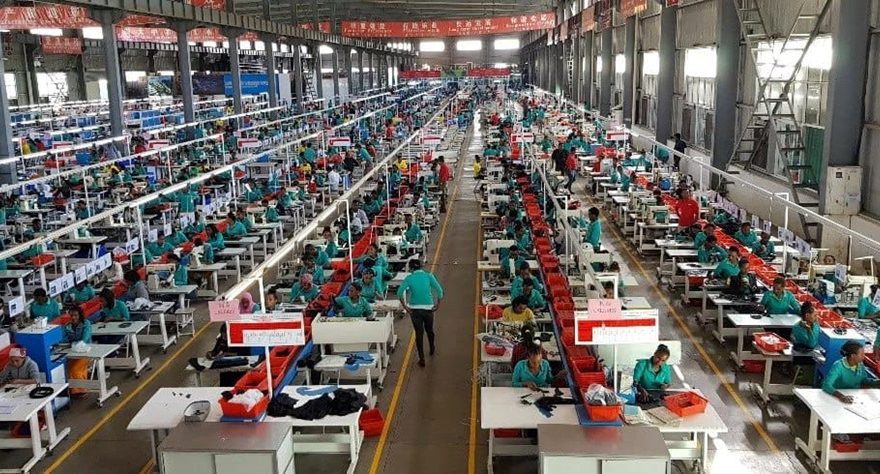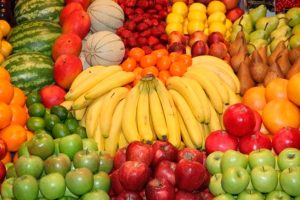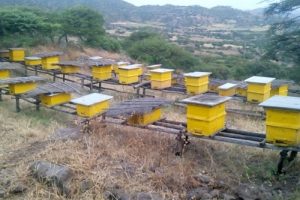
It is obvious that the nation’s economic main stay is agriculture which is characterized by subsistence farming. It is also vulnerable to climate change and global warming. In time of adversity, its yield will be critically affected and consequently, the economy will be shaken. The livestock, which is the sub sector of agriculture, is also traditional and its contribution to the sector is insignificant.
The sector supplies raw materials to the agro- industry, food to the local market and it is also a major foreign currency earner which contributes up to 70 percent. The agriculture products exported to the foreign market is less competent because it is exported in the raw form and this necessitates exporting the products with value addition.
Ethiopia imports more capital goods and commodities than it exports and there is a huge gap so that to narrow the gap, import substitution is taken as a way out by the government. Currently, the nation has faced negative trade balance, foreign currency crunch, illegal trade, inflation, high unemployment rate, dropping of export volume and others. Hence, boosting export and import substitution have been taken as remedial actions to solve shortage of hard currency.
In addition, mitigating illegal trade also boosts the nation’s hard currency garnering capacity because the informal channel of trade will be changed in to legal and formal and increases exports.
The government, in its 10 years perspective economic plan, underlined the value of import substitution to save its meager hard currency. Ethiopia, though it is an agrarian economy, importing agriculture products is embarrassing. Therefore, ceasing this trend as soon as possible and substituting at least imported agricultural products by local one in the shorter period is a must. The raising of wheat production through dry season irrigation farm can be taken as a good example in this regard.
Recently, the Minister of Industry said import substitution efforts will be intensified over the coming years to enhance Ethiopia’s economic development. A half-day consultative discussion with stakeholders on the national import substitution strategy was conducted in Addis Ababa a week ago. On the occasion, Melaku Alebel, Minister of Industry, said that Ethiopia’s foreign trade gap when compared with other countries is very huge that hampers the economic growth and poverty reduction.
Ethiopia imports products worth 18 billion USD on average while its export is not exceeding 5 billion USD, he added. For the developing countries such as Ethiopia, trade deficit is intolerable and unless reversed step by step, it overshadows the nation’s efforts to attain economic growth. According to him, this is mainly due to the fact that the nation exports more of raw materials that limit its competitiveness in the global market.
The Government has been working to reverse this reality with a view to expediting the development of the country by strengthening the industrial sector. In this regard, enhancing import substitution has been given the top priority.
Ethiopia’s import substitution strategy has been bearing fruit and the nation is able to substitute products such as textiles and food stuffs. Military uniforms that used to be imported are now fully substituted with domestic products while 100 percent of beer barley seed demand of the country has also been covered with domestic products.
Encouraged by this achievement, and supported by the strategy, Ethiopia is able to substitute products worth 2.26 billion USD over the last fiscal year. The nation has also substituted import products worth 350 million USD in the first quarter of the current fiscal year.
The Minister indicated that import substitution efforts will be intensified over the coming years to enhance Ethiopia’s economic development. At the consultative meeting, he further said that due attention is given to value addition and diversification of export products. Some 96 import products have been identified to be produced locally in short and long-term plans, it was indicated.
Furthermore, the Minister indicated that plans are in place to export the substituted import products. The Minister has also explained that it was planned to develop a capacity-building strategy, which will be discussed with pertinent stakeholders soon.
Cognizant of the macro-economic imbalance, the government has given emphasis to boost export through value addition and substitute import because export boosts the nation’s hard currency earning capacity while the import substitute saves the meager resource which would be allocated for importation.
So far, value addition of export products has been implemented through expanding the manufacturing industry. The government established industry parks in various selected parts across the country in the places where there are sufficient raw materials and labor.
The manufacturing sector enables to boost export, substitute import, create link with the agriculture sector, create job opportunity, attract foreign and local investment and broaden role of the private sector in the economy.
One of the government’s schemes to address shortage of hard currency is attract Foreign Direct Investment. In order to attract foreign investors, the government created enabling environment beforehand and among others, it has adjusted the exchange rate which is preferable as compared to other African countries, provided working places in the industry parks in a fair price, supplied water and electric power with affordable price and availed the internet and banking services inside the parks.
According to studies of the African Development Bank, countries must work effectively and governments need to withhold hard currency held in their central bank reserves in order to substitute import and expand their exports. This limits the amount that can be used by locals to import goods and equipments. Governments want hard currency to spend only on essential commodities that cannot be produced domestically.
This method is designed to increase spending on domestic products and subsequently, stimulate the manufacturing industry and decrease unemployment. However, in order for this to be achieved, governments should facilitate the building of manufacturing plants. Further effort from African governments is needed to attract foreign investment because investors often expect and it is logical to benefit from incentive packages and economically beneficial zones dedicated to specific industries for free trade zones. Nigeria, Ghana, Ethiopia, Rwanda, Kenya and Mozambique are just a few countries to have already taken these steps.
Nigeria has in fact devoted three of its six economic zones solely to manufacturing, using incentives such as tax-free imports of equipment, three-year tax holidays and preferential procurement processes to lure foreign investment. In the case of Ethiopia, the establishment of free trade zone in Dire Dawa City in this regard can be mentioned.
In order to achieve economic growth and to reduce dependency on import products, developing countries must take expansion of manufacturing industries as a viable option. It can easily attract the emerging economies such as China, Turkish, India and Brazil.
According to the World Bank’s recent report, China and India have excess forex deposited in their banks and they prefer African and other developing countries as their investment destiny. So far, they engaged in infrastructure construction, developing energy sector and manufacturing.
Currently, the two countries play a vanguard role in the manufacturing sector in Ethiopia. They engaged in textile and garment, mining and agriculture. All the products are produced for export and boost the country’s foreign currency earning capacity.
The other thing which needs solution and critically hampered the nation’s foreign currency earning capacity is illegal trade. According to the Ministry of Agriculture’s recent report, more than 10 thousand cattle are exported illegally to the neighboring countries per week.
According to Seifu Hailu (PhD), the Animals Quarantine Regulatory Executive Director under the auspicious of the Ministry of Agriculture, some traders are resorted to engage in illegal trade by exporting cattle to the neighboring countries in order to obtain better hard currency. To contain such illegal trade, supervision work has been undergone in the border areas but the intensity of the territory made the effort in effective.
As to Seifu, the low price of cattle in the local market and distance to the central market pushed traders to engage in illegal practices through nearby borders. Therefore, in addition to strengthening import substitution, enhancing export and containing illegal trade should be taken as a way out to alleviate foreign currency crunch.
BY ABEBE WOLDEGIORGIS
The Ethiopian Herald November 5/2023





